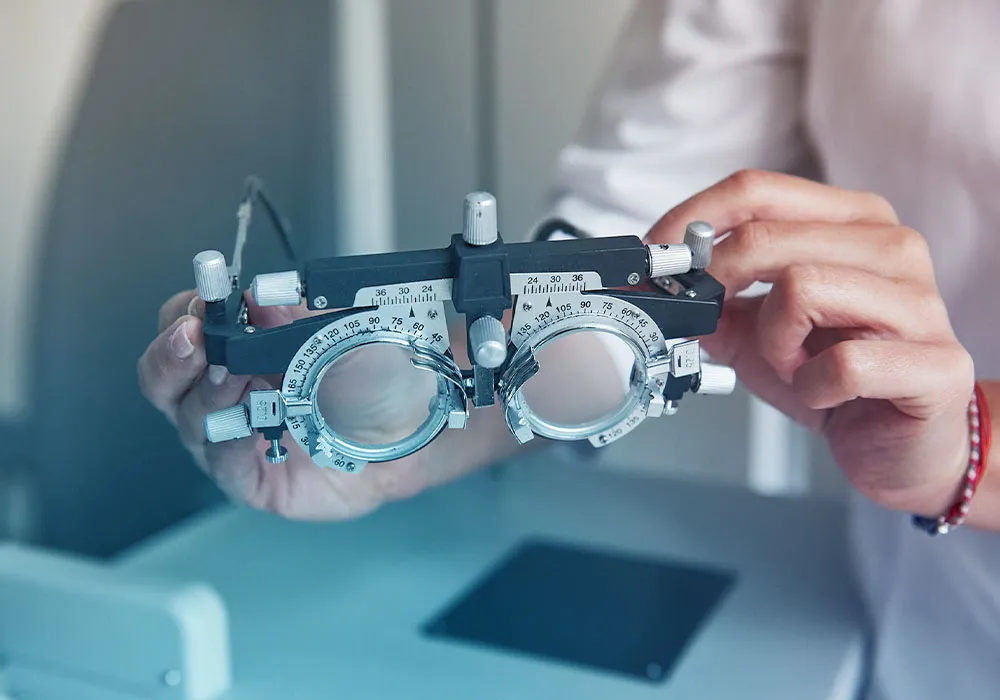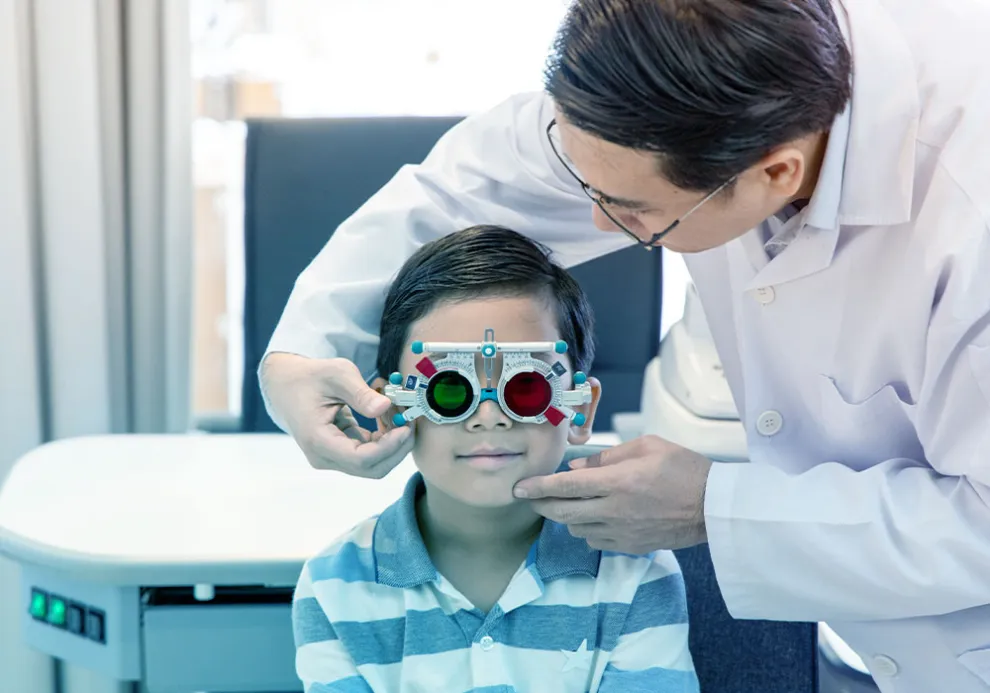As we age, our bodies undergo various changes, some of which can impact our vision. One such condition is macular degeneration, a leading cause of vision loss among older adults. Understanding the risk factors and preventive measures can help protect your eyesight.
Age-related macular degeneration (AMD), affects the macula, a small spot near the center of the retina responsible for sharp, central vision needed for tasks like reading and driving. People with macular degeneration often lose the ability to see objects directly in front of them. This common age-related eye condition mostly occurs in people over the age of 50.
Dry AMD:
The more common form, accounting for 80–90% of cases. It involves the gradual thinning of the macula with age.
Wet AMD:
Less common but more severe. Involves abnormal blood vessel growth under the retina that can leak, leading to quick vision loss.
Understanding your risk can help you take preventive action. Major risk factors include:
Age: Most significant factor; risk increases after age 60.
Family History and Genetics: A family history can elevate your risk due to inherited genetic markers.
Smoking greatly increases the likelihood of developing AMD.
Diet: A diet high in saturated fats—such as those found in fried foods, processed snacks, fatty meats, and full-fat dairy products—can increase the risk of developing age-related macular degeneration (AMD).
Sun Exposure: Prolonged exposure to ultraviolet (UV) rays from the sun has been associated with an increased risk of AMD. Wearing UV-blocking sunglasses is recommended.
Dry macular degeneration has three stages. Often, symptoms like vision loss aren’t clear until the late stage. However, your eye care provider can see signs when doing an exam.
Early: Your macula changes, but vision isn’t affected.
Intermediate: Vision may get blurry or wavy.
Late (advanced): Central vision fails completely.
While some factors can't be controlled, lifestyle choices can make a difference:
Healthy Diet:
Leafy Greens: Spinach, kale (rich in lutein and zeaxanthin).
Fish: Salmon, mackerel (high in omega-3s).
Vitamins: C and E, zinc, antioxidants (found in fruits, nuts, seeds).
Routine Eye Exams: Early detection is key, especially for individuals at higher risk.
Quit Smoking: Reduces your overall risk and benefits general health.
Protect Your Eyes: Use UV-blocking sunglasses and wear a wide-brimmed hat outdoors.
There is currently no cure for AMD, but treatments can help manage it:
Dry AMD:
Currently, there is no approved medical treatment to reverse or cure early-stage dry age-related macular degeneration. However, research has shown that a specific combination of vitamins and minerals—known as the AREDS (Age-Related Eye Disease Study) formulation—can help slow the progression of the disease in people with intermediate or advanced stages. This supplement typically includes high doses of vitamins C and E, zinc, copper, and antioxidants like lutein and zeaxanthin. While it does not restore lost vision, it may help preserve remaining sight and delay further deterioration of the macula.
Wet AMD Treatments:
Wet age-related macular degeneration progresses rapidly and requires prompt treatment to preserve vision. Several treatments are available to help manage the condition:
Anti-VEGF Injections: These medications are injected directly into the eye and work by blocking a protein called VEGF (vascular endothelial growth factor), which stimulates the growth of abnormal blood vessels under the retina. By inhibiting this process, the treatment helps stop further leakage and damage, slowing vision loss and sometimes even improving vision.
Photodynamic Therapy (PDT): Doctors inject a light-sensitive drug into the bloodstream into the bloodstream, which then travels to the abnormal blood vessels in the eye. A special laser is then directed at the retina to activate the drug, which helps destroy the abnormal vessels without harming surrounding tissue.
Laser Surgery: A high-energy laser beam is used to close off and destroy abnormal or leaking blood vessels under the retina. While this approach is less commonly used today due to the precision of anti-VEGF treatments, it may still be suitable in some cases to prevent further vision damage.
Macular degeneration can significantly impact your vision and quality of life—but early detection and expert care make all the difference. At Magrabi Eye Hospital, our specialists provide advanced diagnostics and personalized treatment to help preserve your sight.
Regular check-ups – Early detection saves vision
Expert guidance – Tailored care from leading ophthalmologists
Cutting-edge treatments – The latest technology for optimal results
Don’t wait until it’s too late. Visit Magrabi Eye Hospital in Dubai, Al Ain, or Abu Dhabi and give your eyes the care they deserve. Book your consultation now!

How Often Should You Get an Eye Check-Up

Pediatric Eye Care: Essential Guide for Kids